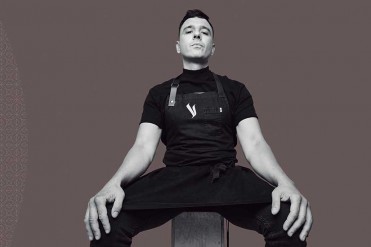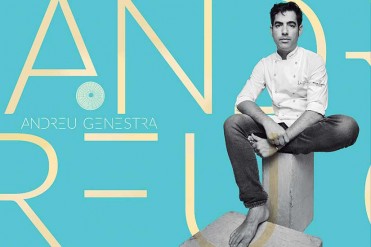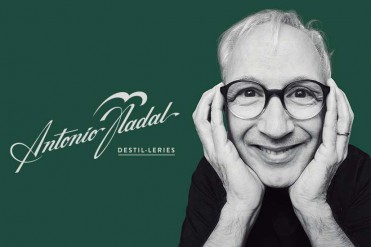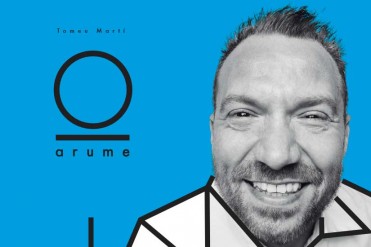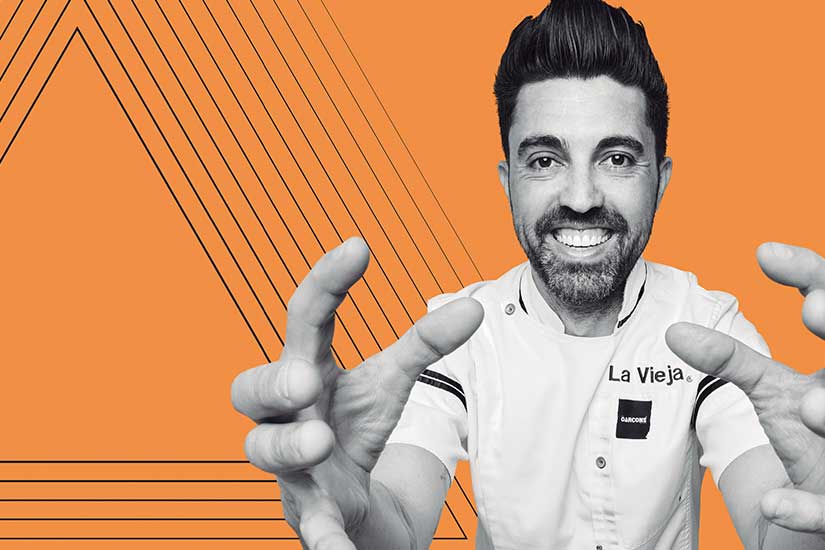
Jonay Hernández
La Vieja is in central Plaça de Raimundo Clar: the name might puzzle overseas visitors but for people from the Canary Islands, “la vieja” is a type of highly relished fish. Jonay Hernández is indeed from Tenerife and is the owner, and heart and soul, of a restaurant that serves, in his words: “Canarian food with travelling influences”. Although it could equally be the other way round: travelling food with Canarian influences. Excluding some exceptions, like the wrinkled potatoes with mojo sauce, the menu doesn’t feature typical Canarian dishes, although the chef’s original creations, inspired by food from far-off lands, are clearly influenced by the flavours, scents and textures of Hernández’s childhood in Tenerife.
A tireless worker, Hernández speaks with the gentle accent of people from the Fortunate Islands. He tells us about his daily life with total sincerity and immense charm: “every time we start a service it’s like a new match” – and when he’s asked why he cooks the type of food he does, he jokes: “I cook whatever I like. I do what I want, I have fun... My cooking is imaginative, I like to surprise, if it sells well too, why not? But it needs to have a culinary basis, a depth, with sauces, sautés...” He adds: “Because when people eat out, they want to eat what they don’t eat at home, but everything matters, the tableware, the service, the decoration. You have to take care of every detail, I’m a nonconformist.”
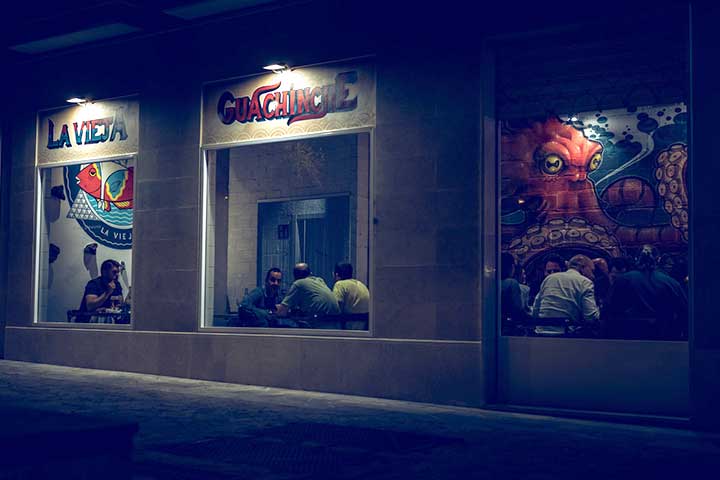
La Vieja
I’ve heard you have some great cocktails at La Vieja...
We’re not a cocktail bar but despite that we try to serve different cocktails. We’ve got our classics and basics, because when you go out to have fun, kicking things off with a great cocktail makes the meal more enjoyable.
You only opened the restaurant five years ago and you’re already recommended in the Repsol and Michelin guides.
We weren’t aiming for that at all but when these things come they make us happy because it’s recognition and it makes you feel good [he replies humbly]. However, our motivation is to improve every day with the customers and try to make 99.9% of them happy. Of course, it’s true that these recommendations mean that you’ll get customers who don’t know you and who check the guide because that way they have a greater chance of eating well – so sure, you’ve got to live up to expectations.
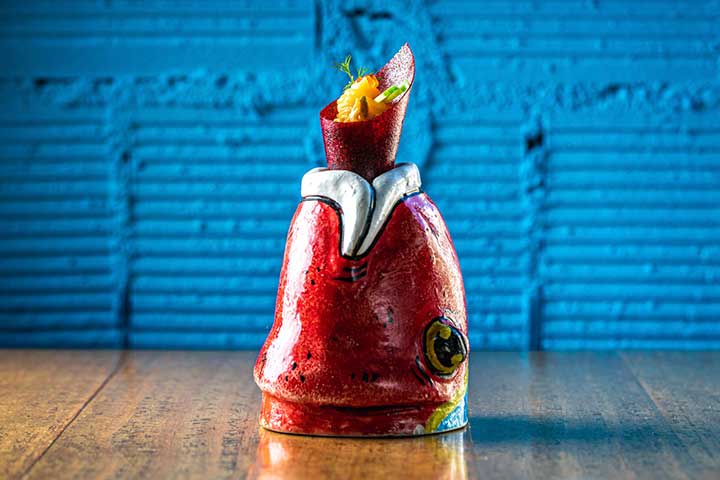
Russian salad cone of sweet potato
Are you thinking of expanding?
My ambition isn’t to open more and more businesses, I’ve been offered projects in big cities around Europe, but I turned them down because, in the end, we all end up in the same place [he laughs]. In fact, we’re going to be smaller than we are now, with fewer customers and my lifelong people, because there’s a general problem with finding staff. I opened La Vieja five years ago, I devote my body and soul to it and I’m happy. I've got things I worry about, like everyone, but I’m happy. What’s important to me is being able to spend time with my family. What’s the point of working so hard? To get your pension? You don’t even know if you’re going to live that long. I don’t want to retire, I want to be always active. And have time for my family.
You said that one of the reasons you don’t want to expand is because you can’t find the staff. Why do you think that is?
I think it’s happening because, yes, it’s true that no one wants to work at this, there’s no sense of vocation, and staff were treated very poorly for a long time. It’s like when you catch too much of a fish and in the end it disappears. It’s our fault. Not so much new businesspeople, we were born with one hand in front and the other behind, we’ve been the washer-up, worked with no holidays or days off. The split shift also means it’s not a very sought-after job. But to be continuously staffed you need to have two teams and that affects the accounts. Because eating out in Spain is still cheap. Eating out isn’t a necessity, it’s a luxury. It’s really important to me that people who work with me have a good life because, in the end, they transmit that to the customer. In my business, schedules are followed to the letter, but I’m not going to lie, the team works very hard for the eight hours that they’re there.
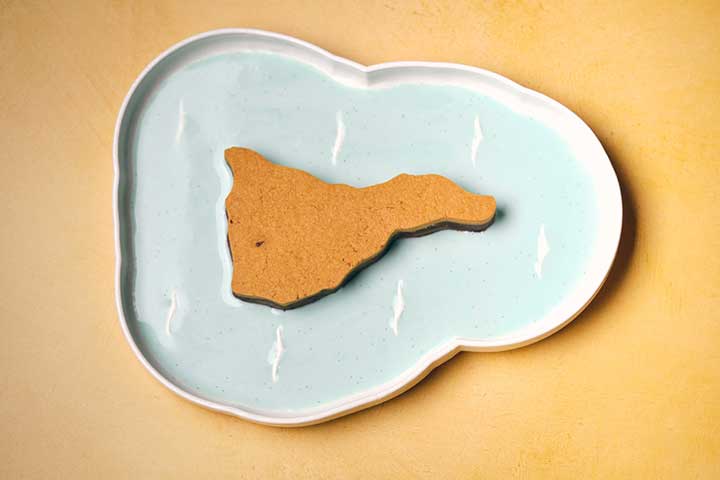
Eat Tenerife
Tell us how you ended up in the hospitality industry.
I’ve worked a lot. I’m from a humble, hard-working family, I’m an ordinary guy. I started out delivering pizzas, to pay for my driving licence, I had a four-hour contract and I worked ten, like lots of people now [he says sarcastically, laughing]. Later I joined the Meliá chain to cover extra work as needed, and I picked up a lot. I did everything there, I cleaned fish, I made the sauces, I learned loads. After that I was making hamburgers and hot dogs at Lago Martianez, I’m not embarrassed to admit [he says proudly] and after that I returned to Meliá, where I spent years running hotel restaurants because they had scouts inside the company, and they recommended me for a management programme. I’m really grateful to them.



